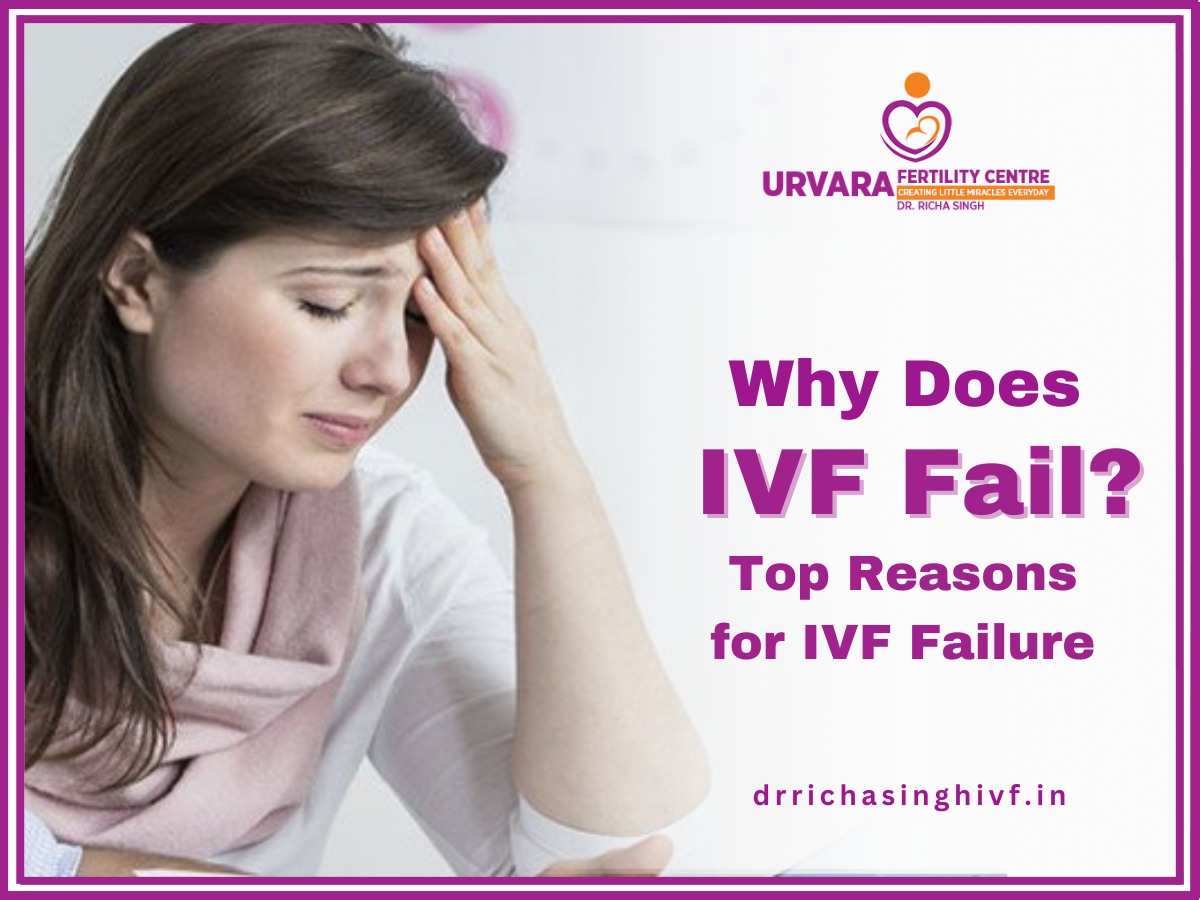Why Does IVF Fail? Top Reasons for IVF Failure
IVF (In Vitro Fertilization) is a medical procedure because of which many couples get chance to conceive a child. However, it is not always successful, and this makes parents shattered but there are several reasons why IVF may fail. In this article, we'll let you know a few reasons why IVF treatment fails and discuss how to optimize your chances of achieving the best IVF treatment outcomes.
Does Age Factor Play a significant role?
According to Fertility and Gynecology Academy scientist, co founder Dr Gorgy shares that women up to the age of 35 have the highest chance of IVF success. So, it means that female age on IVF outcomes is a well-documented phenomenon. If women age is more than 35 years then it not only does the number of their eggs decline, but the quality of those eggs also diminishes.
How Ovarian Response affects IVF technique?
During IVF treatment, women are typically required to self administer daily injections of a fertility hormone known as follicle stimulating hormone (FSH). As, some women’s get good response of it whereas some women’s ovaries do not respond correctly to this medication and thus fail to produce a greater number of eggs for collection.
According to Dr. Gorgy, encountering a suboptimal ovarian response does not signify the end of the road for IVF treatment and this requires a thorough evaluation and possible adjustments to the medication regimen. The evaluation of ovarian reserve involves two key tests. One of them is a blood test for Anti-Mullarian Hormone (AMH) levels and other one is ultrasound examination to assess the antral follicle count and both of tests gives proper information about the woman's ovarian reserve. Not only this, but it also helps the doctor to select the accurate treatment protocol and hormone dosage to stimulate the women's ovaries and yield a reasonable number of eggs for the IVF treatment.
Is Embryo Quality Matters?
If we talk about laboratory portion of IVF treatment, then female's eggs and the male's sperm are combined in the hope of forming an embryo. Sometimes, embryos might appear healthy but there are a few percent chance that they may fail to implant in the uterus due to an invisible defect.
Our best fertility doctor in Lucknow uses a scoring and accurate system to grade the quality of the embryos and then only the selected ones are transferred back into the uterus and incubate the embryos until they reach the blastocyst stage (5-day-old embryos).
Let me tell you that embryo scope is a closed incubator. This incubator has a camera inside that takes photos of the embryos every 10-20 minutes. Through this, our team can easily monitor the progress of the embryos as well as help us select the best one for embryo transfer for women's pregnancy.
What Implantation Failure Occurs?
Implantation failure occurs when an embryo does not attach to the lining of the uterus which is endometrium. This failure might be due to uterine polyps, due to thin endometrial lining, infection of the uterus or uncertain increase in progesterone levels. As per Dr Gorgy, 'Most of the time, implantation issues are beyond the limit but because of our top IVF treatment we run comprehensive group of tests to check for the possible causes of implantation failure'.
How your Lifestyle affect IVF?
A Healthy lifestyle before and during IVF can help and improve women's chances of conceiving a baby. Stress, smoking, and an unhealthy diet have a negative impact on fertility. It is important that women should quit smoking, maintain a nutritious diet and exercising regularly to improve her chance of pregnancy.
Why Chromosomal Abnormalities Happens in IVF Treatment?
Chromosomal abnormalities are the most common reasons for IVF failure. The risk of chromosomal abnormalities increases if age of the woman is more than 35 years. Chromosomal abnormalities can be inherited from parents, or it might occur during the early stages of embryo development.
With analysis of Dr Gorgy, “Chromosomal abnormalities are most likely to be present in the embryos of women who are more than 35 years. But our team will test the embryos for all 23 pairs of chromosomes for any inherited chromosomal or gene abnormalities so that we can replace it with normal embryos, and this leads to successful IVF treatment.”
Why Do IVF failure Occurs and You Must Know That How to Reduce Repetition of Failure?
Remember, it is not unusual for IVF to fail, even after multiple cycles. For any women it is difficult to cope up from this situation. But there are many factors that can contribute to IVF failure. With the help of your doctor, you can identify the cause behind it and develop a plan to improve your chances of success.
There are few techniques which are done to find out root of the IVF failure-
- Immune testing
- Infection screening
- Assessment of uterine cavity
- Karyotyping
- Sperm assessment
Our successful team of IVF specialists will be happy to help you out during your IVF Treatment. For any further queries, you can reach us out though call the clinic on +91-8090481533, or book a consultation. Remember We Are with You.
Also Read- How To Get Successful IVF Treatment?
